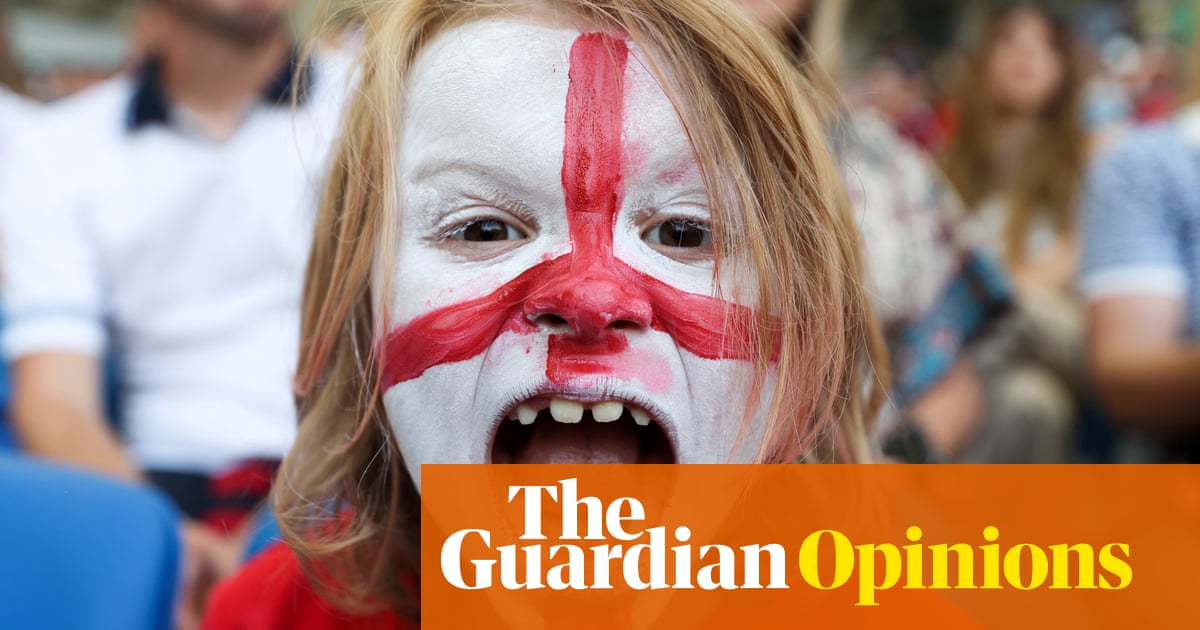Most people probably won’t pay much notice to their calendars showing this is St George’s Day, a celebration of a long-dead Roman soldier whose connection to England has as much basis in fact as the dragon he was said to have slain.
The day is sometimes marred with troublemaking by the far right. But an obsession with English mythology isn’t confined to the fringes of politics. For the past decade, overly engorged ideas about this country have taken hold in an increasingly stark and polarised debate about its future.
Some have talked of wresting back from Europe an English birthright of liberty or yearned for a “global Britain” era when the Royal Navy ruled the waves. Others proclaimed a moral superiority that supposedly once “civilised” those they saw as “savage”, while still more look inwards to a story of an enchanted island that can stand alone against the world or even turn back global tides.
The stories we tell about ourselves matter at any time, but never more so than in election years when such oversized myths have been pitted against the more everyday thoughts about the country held by the people who live here.
As politicians prepare for a potentially pivotal general election, there are already endless debates over the European convention on human rights, stopping a “new Armada” of desperate people crossing the Channel, how the English “white working class” think – as if they are a single homogeneous mass – or what both leftwing and rightwing culture warriors like to condemn as the “establishment”.
However, polling out this week from More in Common and the UCL Policy Lab suggests that the overwhelming majority of English voters neither want to recreate their country’s past nor forget it entirely. Despite a blizzard of front-page headlines suggesting the contrary, only 13% of English voters said they would describe the establishment as “woke”.
In a week when Keir Starmer said the Tories had “lost any right” to call themselves a patriotic party and added he had “no time for those who flinch at displaying our flag”, the Labour leader will be encouraged by findings that barely a quarter of his party’s voters felt even slightly uncomfortable about walking through neighbourhoods where the cross of Saint George is on display.
A new book published this week that I’ve co-authored with Marc Stears at UCL seeks to deflate the more grandiose myths floating high over England with their empty abstractions and tired cliches of national exceptionalism. Instead, we try to tell quieter stories that bend into the folds of a complex nation that is never quite what it seems but for which people of all kinds have deep affection.
As two writers from the centre left, we try to provide some hints at the direction Starmer – the most self-consciously “ordinary” person to lead a major political party for more than 30 years – might take. But, in describing seven places associated with seven myths, we’ve also tried to set out a different and possibly more “English” approach to tackling the towering challenges facing politicians from all sides.
For instance, a country like England with its long maritime history and coastline should have a relationship with the wind and the sea. Nowhere more so than in Plymouth whose identity is heavily based around tales of Francis Drake. These days, Plymouth University has become a world leader in floating windfarm technology. Although that might lack swash and buckle, these ugly new contraptions are a whole lot more relevant to our country’s security today than reheating some notion of derring-do by a 16th-century pirate and part-time slave trader.
Similarly, the memory of standing alone against the march of Nazi Germany was never really true because it ignored the contribution of Britain’s still-vast empire. For Enoch Powell, however, it morphed into an idea that we did not need anyone except ourselves and that the arrival of immigrants from the “new Commonwealth” threatened to destroy England itself.
Wolverhampton Wanderers, the football club in the city he represented for so long as an MP, shows why he was wrong. The club’s community programme has helped heal divisions and, at matches, there’s even a “Punjabi Wolves” section where local Sikhs bring their dohl drums to games.
Blackpool is an epicentre of poverty with no fewer than eight of the 10 most deprived council wards across England. It’s why, for many commentators, the town has become a symbol for the kind of left-behind white working-class voters who backed Brexit in 2016. Ever since, politicians have been showing up to promise elaborate new projects or even turn it into “Silicon Sands” like the valley in northern California, even though little investment has been made in the one thing of which Blackpool has more than enough: need.
Behind the headlines, however, there are smaller, locally inspired examples of schemes to help patients out of hospital, clean up communities or get children to attend school that offer people more self-respect than any flashy new redevelopment.
Those are just three examples of how, instead of vainly promising to solve everything all at once, a less puffed-up set of ideas rooted in real lives and a more ordinary kind of hope can help fix a few things in a country that should belong to everyone, or, at least, to no one in particular.
-
Tom Baldwin is a journalist and former senior adviser to the Labour party. He is the author of Keir Starmer: The Biography and most recently, with Marc Stears, of England: Seven Myths That Changed a Country and How to Set Them Straight

Sophie Anderson, a UK-based writer, is your guide to the latest trends, viral sensations, and internet phenomena. With a finger on the pulse of digital culture, she explores what’s trending across social media and pop culture, keeping readers in the know about the latest online sensations.








